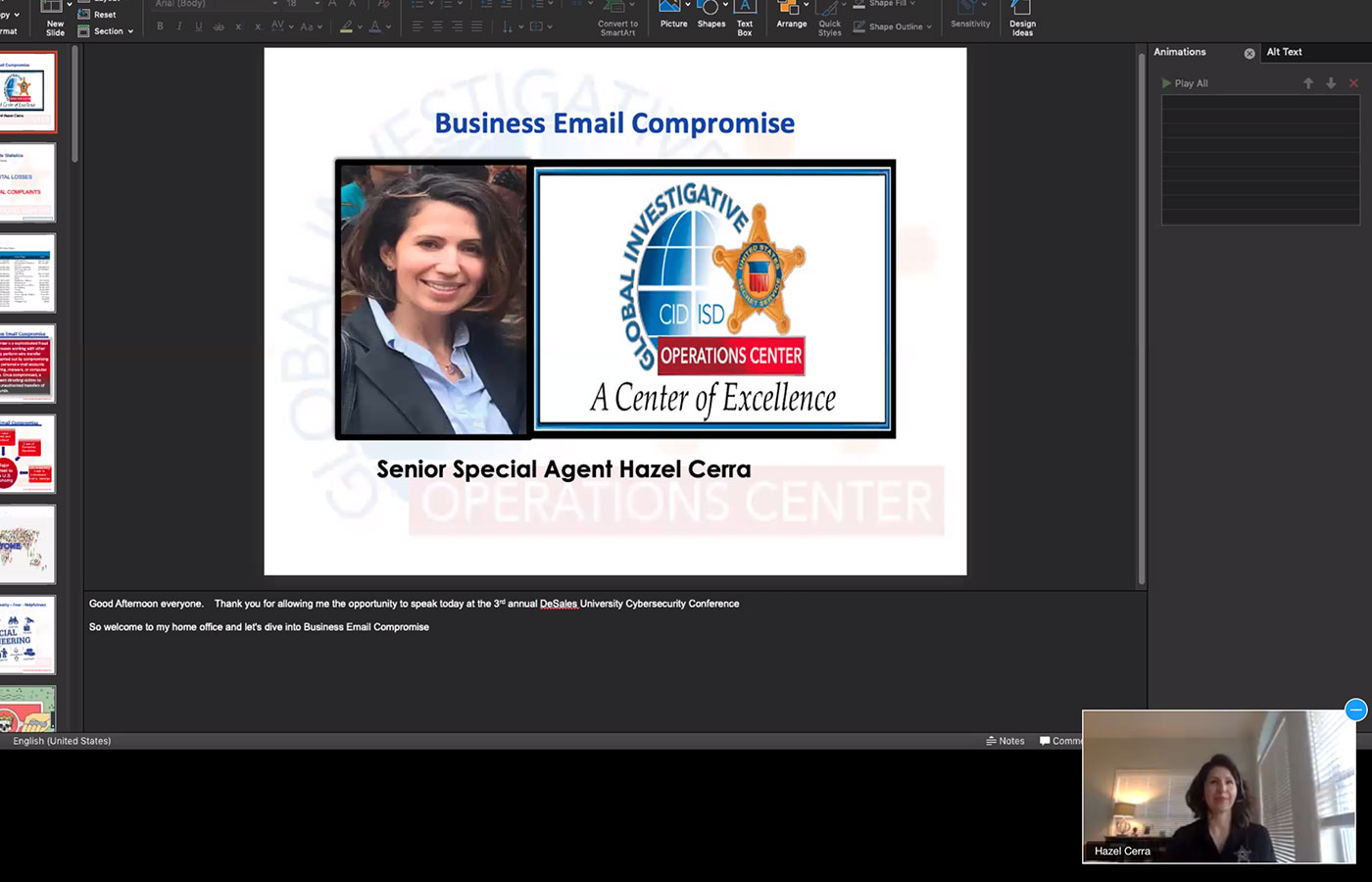Third Annual Cyber Security and Digital Forensics Conference Goes Virtual

The Coronavirus pandemic may have brought large swaths of society to a standstill but it’s not stopping cyber thieves from targeting your personal and business information. That was the theme of the Third Annual Cyber Security and Digital Forensics Conference.
The Master of Arts in Criminal Justice (MCJ) Program and Master of Science in Cyber Security Program joined forces for the virtual event, which featured the Pennsylvania National Guard Wi-Fighter Cyber Challenge along with presentations from experts in incident response, hacking, and programming, among other areas.
Hazel Cerra, a senior special agent with the United States Secret Service, broke down the basics of business email compromise—one of the fastest growing cyber crimes affecting nearly every industry. BEC crimes can take a variety of forms—from romance scams to scammers using spoofed email addresses and domain names to ask for money or gift cards.
“BEC is not a technical scam,” said Cerra. “In fact, it uses very little technology to create some of the best results that we’ve seen and some serious losses to our country.”
According to Cerra, these scams are so successful because they’re easy to pull off and there’s very little risk. On average, a BEC attack brings in $130,000 per scheme compared to a bank robbery, which typically nets just $3,800.
“We always say that dumb people are the ones that rob banks,” she said. “It’s the smart people that can social engineer their way into a successful scheme.”
A few of the biggest red flags to be on the lookout for are emails containing urgent requests, those from someone who is out of contact, or those containing poor language and grammar. Cerra recommends adjusting the privacy settings on your LinkedIn account—especially if you’re in accounting or financing—so people can’t view your connections. But the biggest way to avoid becoming a victim is communication.
“We can be sitting across the desk from each other and we won’t even talk to each other,” Cerra said. “We will send an email or an IM, and that is what the bad guys are leveraging from our new work environment.”




